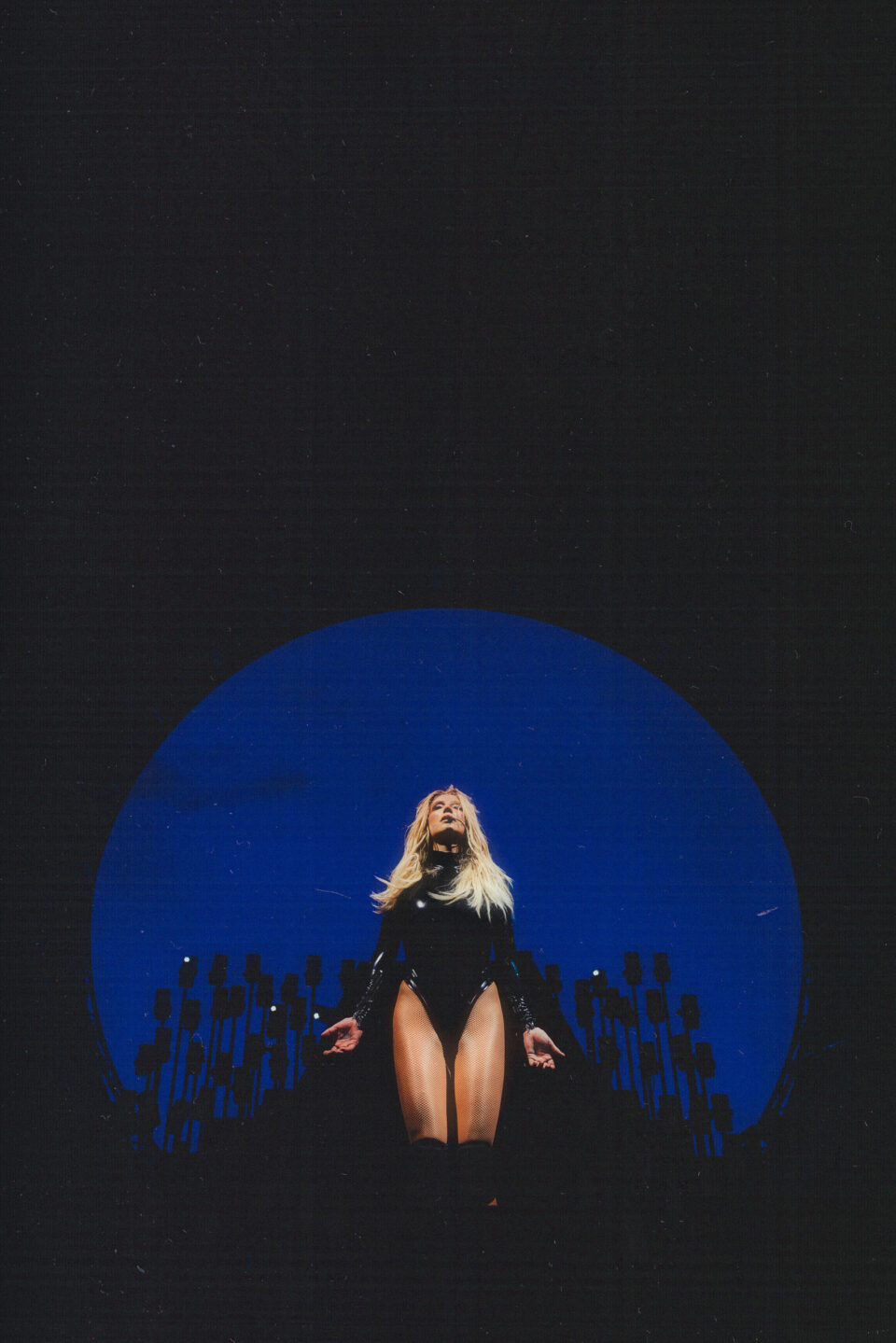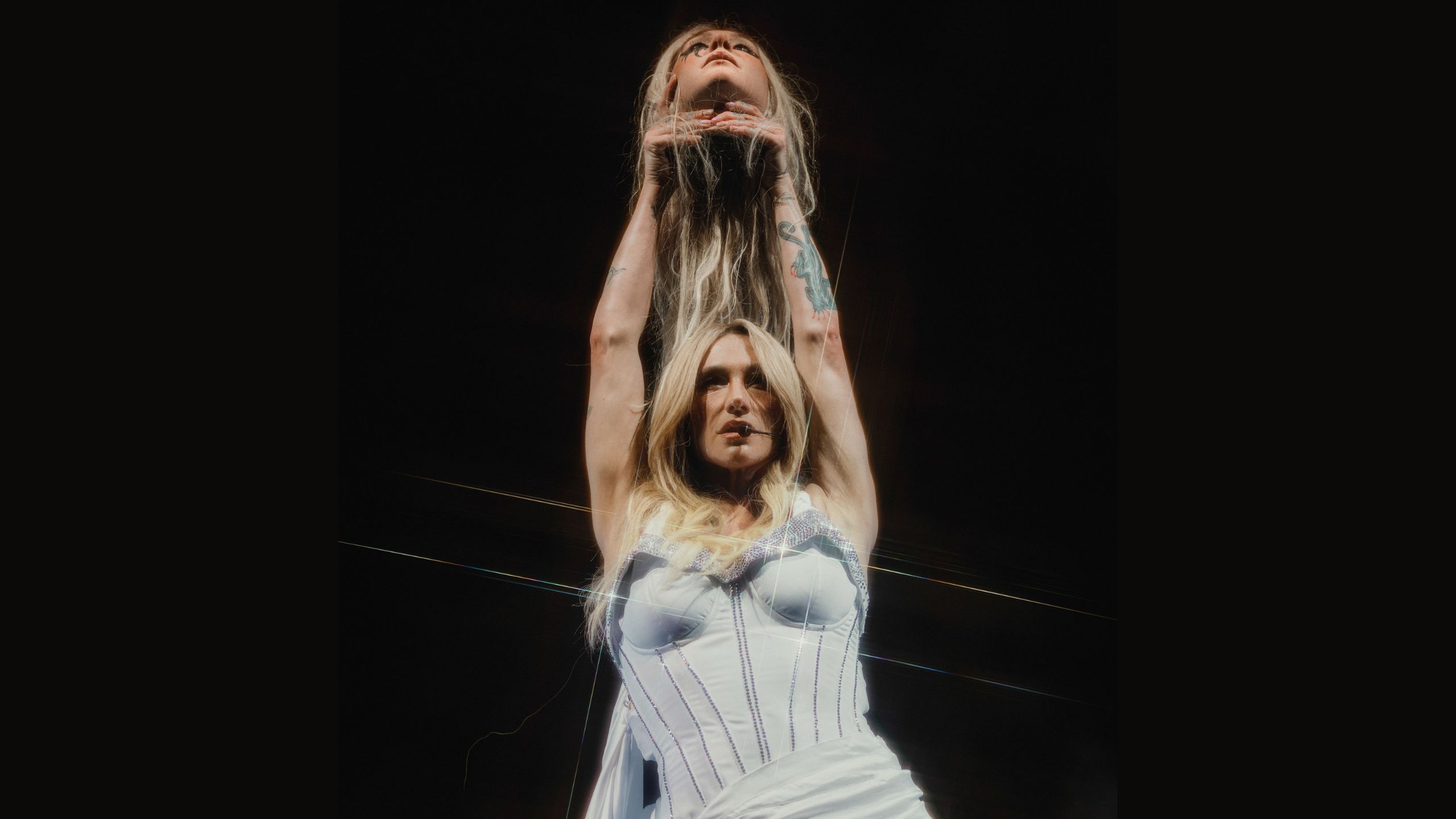To paraphrase Jesus Christ in the Gospel of Mark, Abraham Lincoln on the campaign trail of 1858, and George Costanza in defense of “Independent George,” a Kesha divided against herself cannot stand. And yet from 2014, when she entered into a lawsuit with producer Dr. Luke for sexual assault and battery, sexual harassment, emotional abuse, and violation of California business practices for their decade-plus working relationship (along with a release her from the producer’s Kemosabe Records), until 2023, when the case was settled, the eclectic LA-born vocalist and electronic composer was, indeed, a divided house.
Now, in the summer of 2025, finally and truly independent with a freshly released, introspective, and funny-as-hell genre-jumbling album Period on her own self-named record label, a ribaldly titled “Tits Out” tour she all but set up on her own, and an in-the-works app aiming to steer young musicmakers away from the dangers of a predatory industry, Kesha’s house is free and clear. Taking a break from said tour until a headlining appearance at Columbia’s All Things Go fest in late September, Kesha gave us a passionate, naked, longform look into what was and will be: free, independent, and undivided from here on out.
You just finished the US run of the “Tits Out” tour with Scissor Sisters. Talk about naming the tour and what its vibe has been like.
“Tits Out” is about a way of life—about being sick of hiding both your physical body, but also emotionally, spiritually, all your kinks, all your flaws. It’s when you just don’t have a single fuck left in you to give about what other people think about you, and you’re just ready to really express yourself in your most authentic form. I just want to create a safe space for people to come and feel like the most authentic version of themselves, and loved and celebrated for it.
I assume that on June 22, 2023 you breathed the heaviest sigh of relief as to what would finally be the most independent time of your life. What was the first thing you did when you got the news that you were free?
The day I actually breathed the most intense, surreal breath of freedom was on December 6, 2023. I got a phone call while I was having coffee in my backyard that on March 6, 2024, I would finally regain legal rights to my voice, a fight I’ve been fighting for nearly 20 years—over half my life, and all of my adult life. So I had three months of an interim to examine my life and decide, what did I want my life as a free woman to look like?
Starting in December, I did an artist-in-residence at Esalen and Big Sur, turned my phone off for a month, lived off the land, wrote songs, and danced in the butterfly migration. I went by myself. I meditated every day for hours, and I started writing in my journal—not even songs, just trying to document the feeling of this blossoming into the person that I’ve been waiting to get the permission to be for my entire adult life. In the woods, I wrote about how my body was my cathedral, and did a photo shoot with one of the people I met in the woods. He had an accordion, and we did a photo shoot where I was just naked, playing the accordion. I felt so comfortable, so safe.
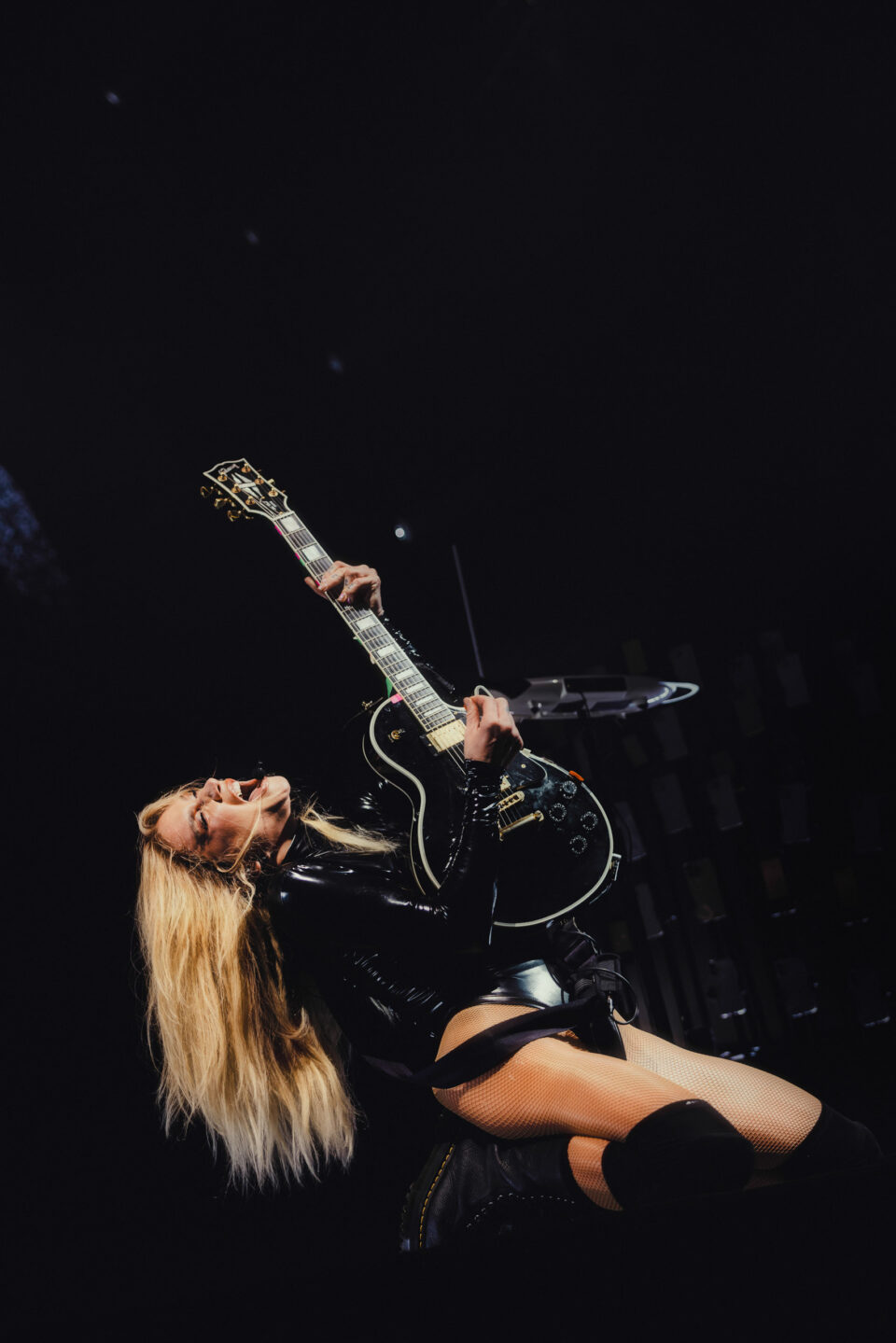
“I don’t know how long it’s going to take to heal, but I certainly feel like having 25,000 people a night sending so much love to me, and me sending so much acceptance to them, has helped my healing exponentially.”
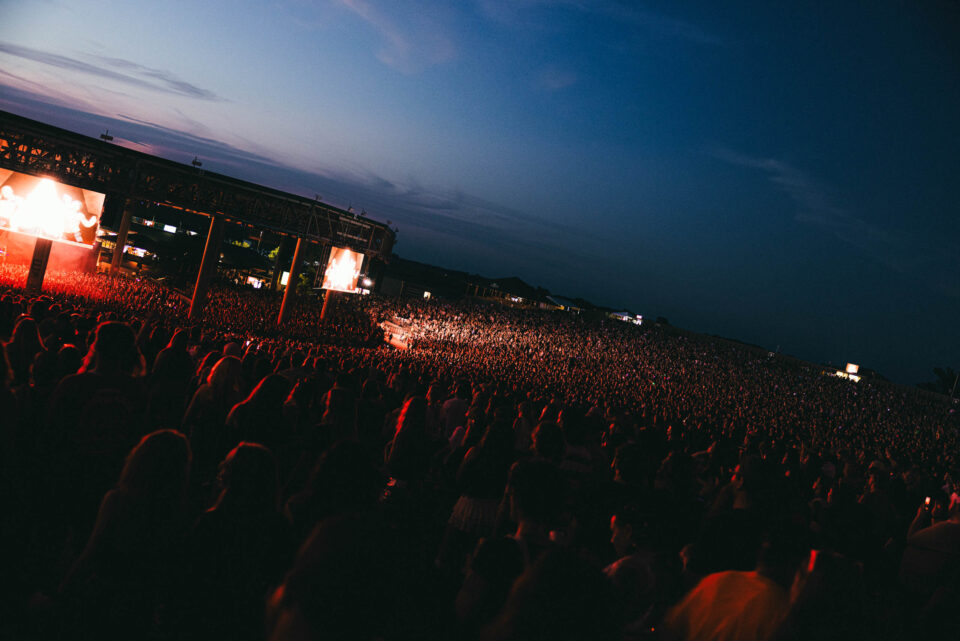
When I finally came back from being in the woods by myself, I connected with Zhone, and was like, “We need to get into the studio ASAP.” That’s where “Joyride” was born. I just really started this process of trying to come back home to my true self before all of this drama and fame and social media comments and diagnosis of my body and my size and my litigation. I wanted all of it out of my body as quickly as possible. In 2023, I got diagnosed with complex PTSD, and I made a commitment to myself that I was going to dedicate as much time as possible to get everything that was making me feel not free out of my body.
And on my “Tits Out” tour, I still feel like I’m just healing in front of the world. I don’t know how long it’s going to take to heal, but I certainly feel like having 25,000 people a night sending so much love to me, and me sending so much acceptance to them, has helped my healing exponentially. Every day on tour, I felt a little more healed. Now I’m home, and I feel like I can sincerely feel the significant healing effects of all my fans that came out this summer and showed me love and support. So I just want to thank them.
You made music during your time in court. What was it like trying to hide the loathing you surely had for the music industry?
It was really confusing to be giving joy from a well that was empty—I had no joy, and I was really devoid of hope at that time. But the beautiful part about it is that I had to put out that music to get my freedom. The price of my freedom was to make music. I never lost my love of music and I never lost my belief in the power of music-making. There were really difficult times, and people like you who would pay attention and show me love—those were little pockets of hope that kept me going, kept my belief in humanity.
Going on the biggest tour of my life and seeing all of my fans accumulating at this moment of true freedom has been really incredible to experience. It’s renewed my faith in humanity so much, and it’s helped me be inspired for my future projects, like the app I’m creating for future music creators to help protect them and educate them and make sure they get paid. So I will say from that really dark time has come inspiration to want to change the future world and landscape of the music business.
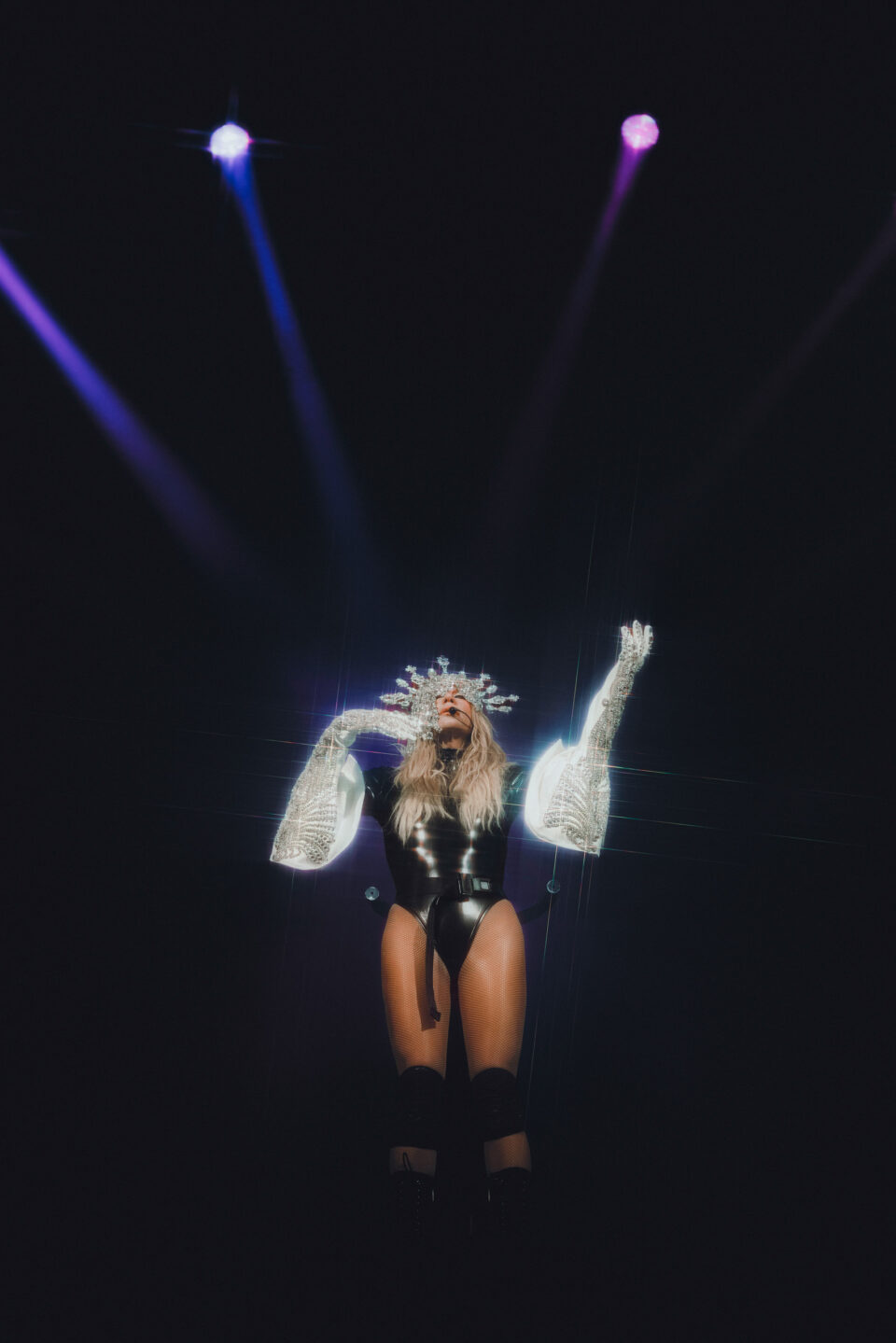
“From that really dark time has come inspiration to want to change the future world and landscape of the music business.”
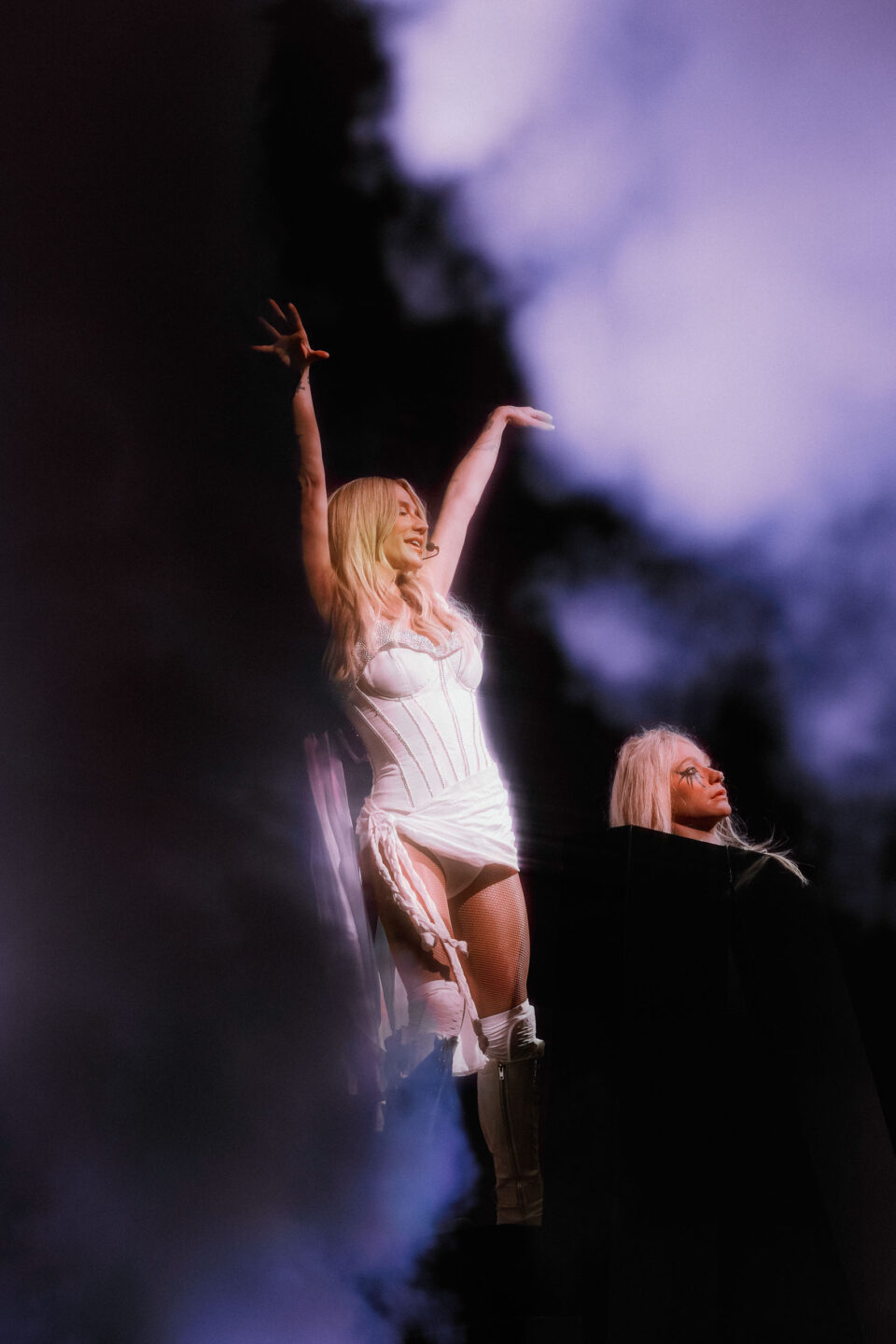
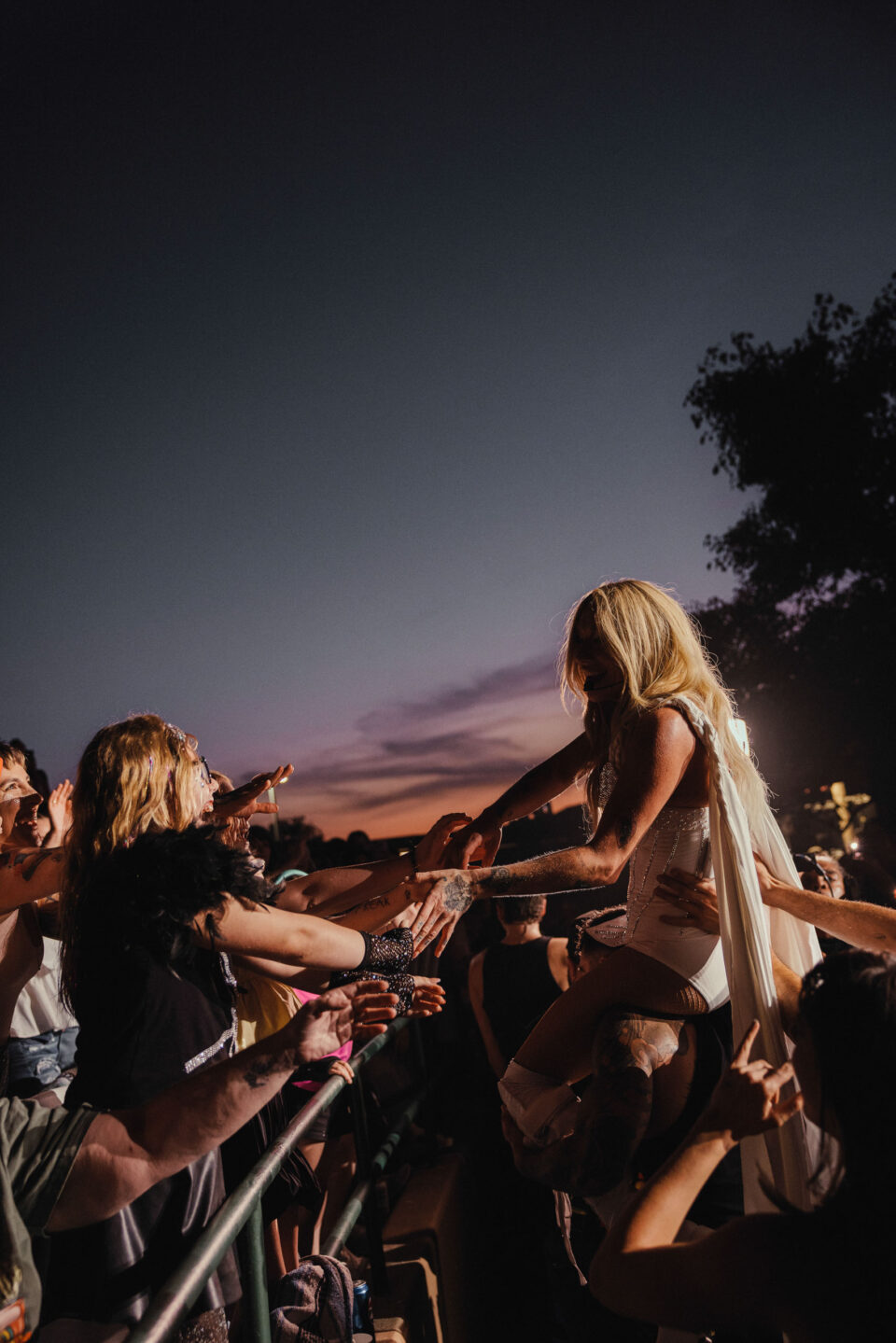
What are your feelings toward Rainbow, High Road, and Gag Order, as they all came out within your time of being trapped? Can you perform their songs now with a sense of renewal?
It was most difficult for me to go back and listen to Warrior. I actually had to set aside an entire afternoon for Warrior. I told everybody in my house to leave. I had to have a date, alone, with that album. It was like a therapy session with a problem child that I had issues with. As I listened to Warrior, my body started to move. I began dancing to it, dancing and crying. It was completely psychotic. By the end of this day, I was excited. All of those songs from Warrior that my fans want to hear—that are going viral on TikTok—I was excited to be able to play them this summer. And it wasn’t just a selfless act; it was actually really healing for me. That’s why I go into the audience and sing those songs, because I wanted to reprogram the memories of Warrior—to associate it with my community and with love, life, and freedom.
What track on Period was written and recorded first—the one that gave the album its direction?
“Freedom,” which is why it sounds like it’s coming from the era of Gag Order—vulnerable, raw, pretty hopeless, forgotten, and sad. But “Freedom” is about how I feel now, a celebration of sexual liberation, bodily autonomy, and spiritual revolution.
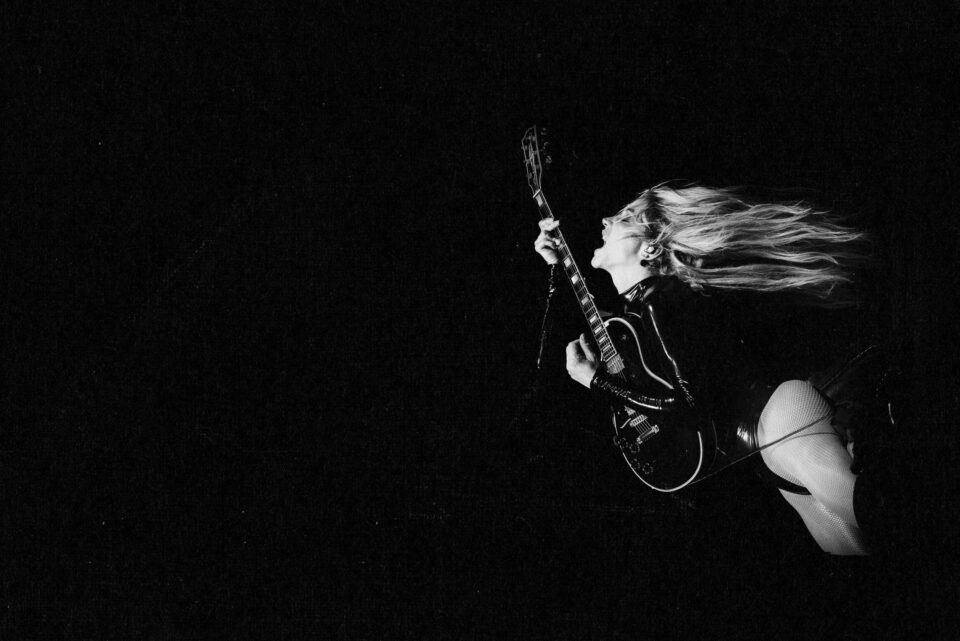
“I really wanted to capture what it sounded like coming home to myself, to truly heal decades of vocal slavery. I wanted to capture what it sounded like for someone to regain the rights to themselves again.”
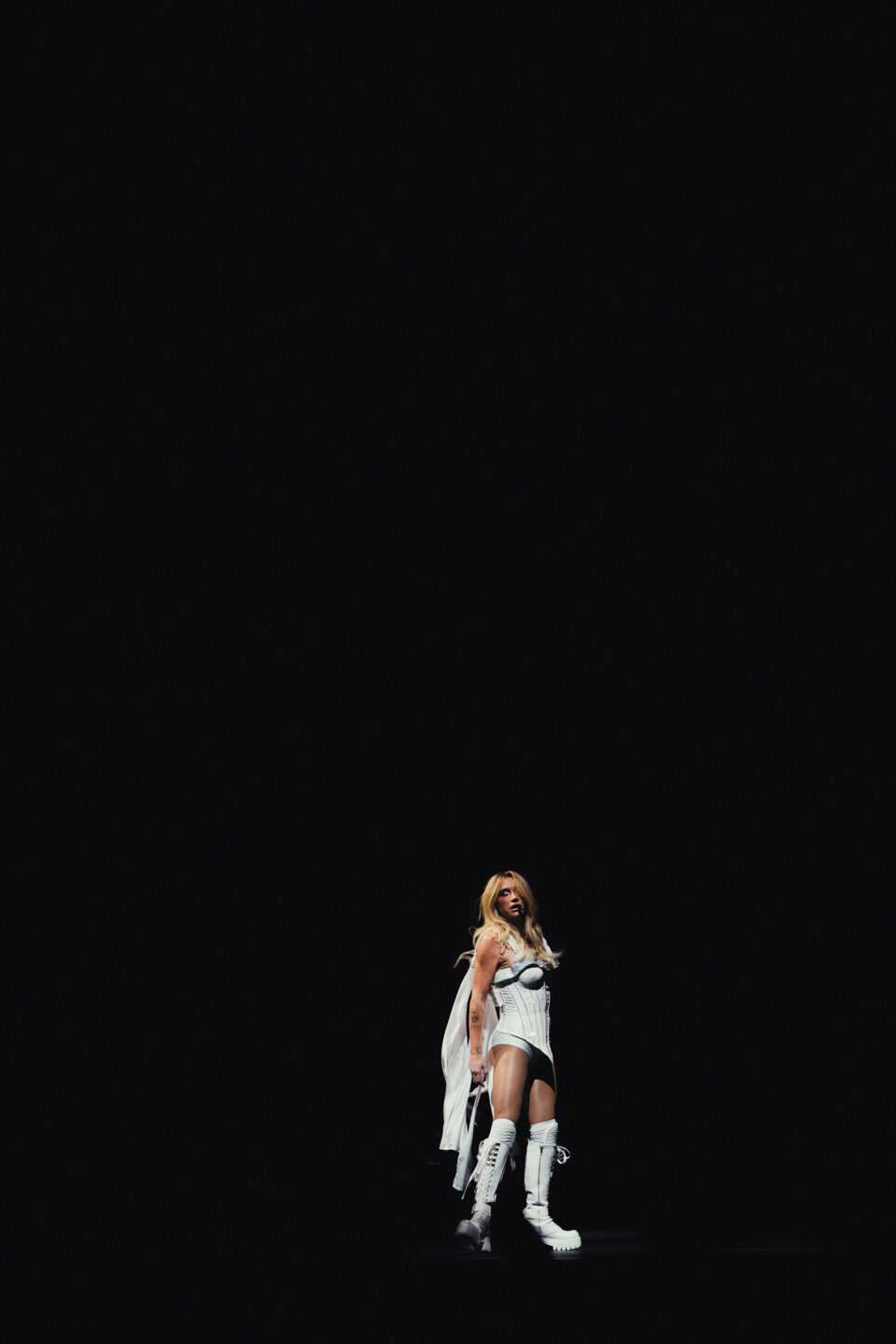
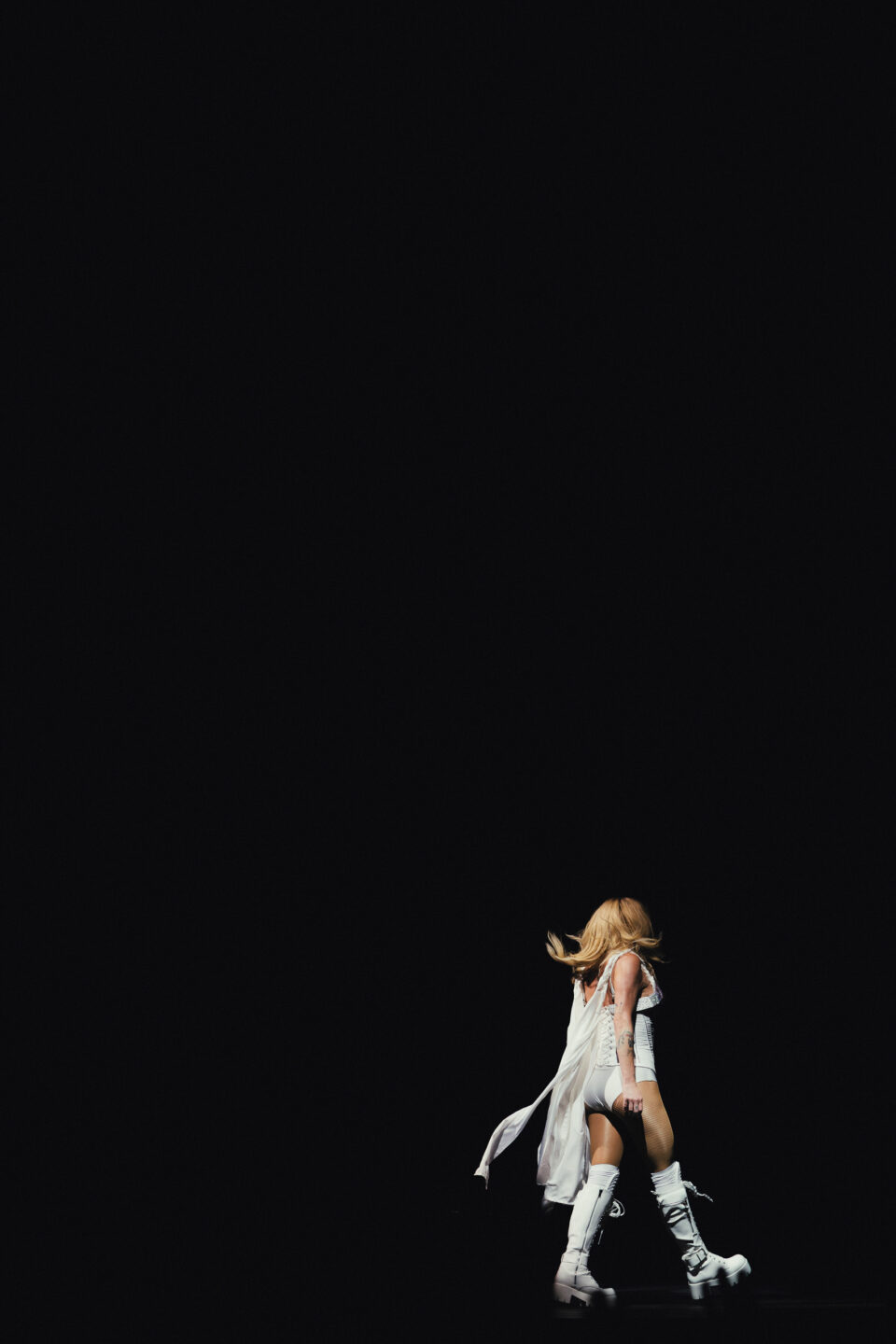
There’s more to Period than that. Once the full album began to manifest itself, what became its central messages?
Music is the most transcendent spiritual practice for me, the most healing thing. It’s special and sacred to me, because it’s bearing yourself for the whole world to see, then sing along to and judge and review. And it’s so intangible, so fucking spiritual to write a song—a huge risk of being seen. So I really wanted to capture what it sounded like coming home to myself, to truly heal decades of vocal slavery. I wanted to capture what it sounded like for someone to regain the rights to themselves again. I got that human right taken away from me for 20 years, like my voice was taken away from me. That’s impossible to even conceptualize. And I wanted to capture what it sounded like actually getting to own a part of me that should’ve never been taken away back. I wanted to capture what it sounds like to become whole, to become free and truly embody it.
This is your first album under your own Kesha Records, and you’re stretching your entrepreneurial wings by developing your SMASH app. Is this where you always wanted to go, an incubator for great work beyond just making music?
It’s actually because of my experiences that I’ve gone through that I see a big opportunity as someone who’s lived through, in huge ways, the problems with the business around music, and has also experienced the healing and spiritual power and interconnectedness of what music can do. I see a huge opportunity to create a safe space for people who want a safe place to play. That’s the tagline for what I want to do at my shows, what I want to do in my community. Creating SMASH feels natural because of my life experience, the problem around the music business. I’m excited to create a new landscape for the next generation and the next dimension—the digital dimension. I’m already helping connect people from around the world so we can all commune and do the most spiritual thing that humans can do, which is create music.
Humans have been creating art since the dawn of time. If a human has a life experience, it’s natural to want to tell your story. We all have a unique story, and the way that we record that is through art. I think that’s the whole point of it: art is eternal and magical. When you create, creators become immortal. So I’m really excited to give a place for people to come and share their perspective and tell their story and immortalize their lived experience. You connect to a higher consciousness. I’m just really grateful that I’ve been given the tools in this lifetime to help people to do that and not have to fall prey to those who are trying to take advantage of us while we create something that I feel like is a human right. FL
